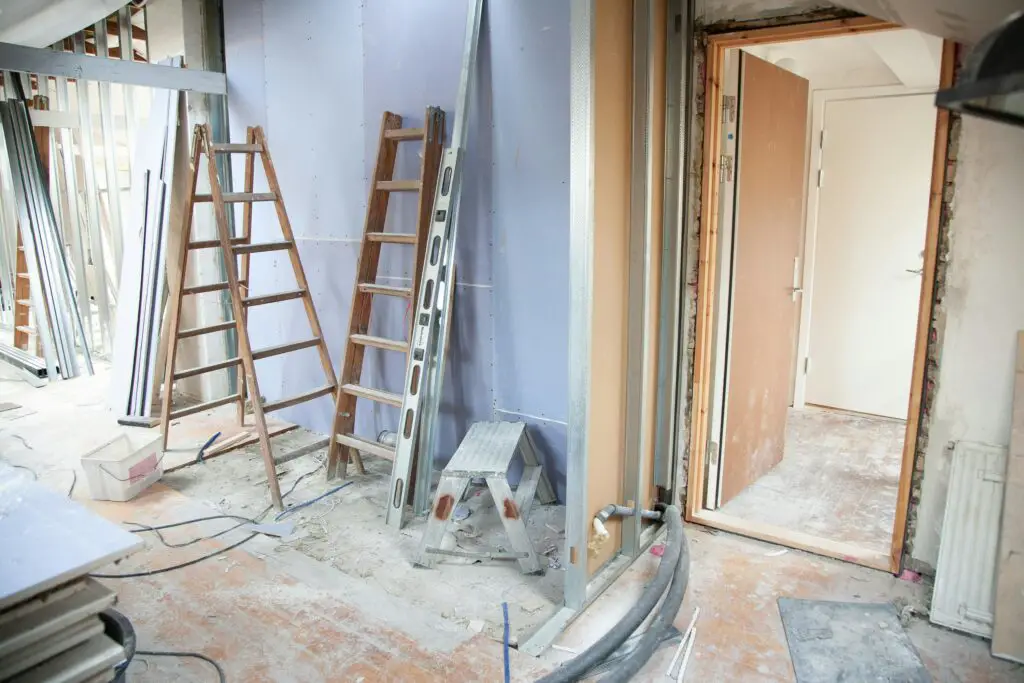Winning the lottery seems like the ultimate ticket to a life of luxury, with grand estates, infinity pools, and custom-built mansions. Shows like My Lottery Dream Home portray winners as effortlessly stepping into their dream properties, but the reality is often far more complicated. Many lottery winners face unexpected financial and emotional struggles after purchasing their luxury homes. From hidden costs to lifestyle adjustments, the dream can sometimes feel more like a burden than a blessing.
While these multimillion-dollar properties may appear glamorous on screen, they often come with surprising challenges. Unexpected maintenance costs, financial mismanagement, and feelings of isolation are just a few of the hurdles winners encounter. Before buying a dream home, it’s important to understand the full picture. Here are 12 surprising facts that reveal the downsides of winning big and buying big.
1. Not Every Winner Can Afford Their Dream Home

According to Forbes, many lottery winners struggle financially despite their newfound wealth, and real estate is one of the biggest reasons why. Purchasing a multi-million-dollar home comes with property taxes, maintenance costs, and insurance fees that can quickly eat into winnings. Some winners, overwhelmed by their sudden fortune, underestimate these ongoing expenses and find themselves in financial trouble within a few years.
Owning a dream home is not just about the initial purchase—it’s about sustaining the lifestyle that comes with it. Utilities, landscaping, and security systems can cost thousands of dollars annually. Without careful financial planning, even the most extravagant lottery win can dwindle fast. Many winners eventually realize their dream home is more of a financial burden than a blessing.
2. Winners Often Return to Their Old Habits

My Lottery Dream Home showcases the excitement of lottery winners upgrading to lavish new homes, but many of them struggle to adjust to their newfound wealth. Studies, such as those conducted by UC Berkeley, have shown that sudden financial windfalls don’t always change spending habits, leading winners to revert to their old ways. Whether it’s excessive spending, poor investment choices, or impulsive decisions, some winners make costly mistakes that can jeopardize their stability.
Buying an expensive home doesn’t automatically come with financial discipline. Some winners take on additional luxury purchases, such as high-end cars and designer goods, without considering long-term consequences. As a result, they may end up selling their homes or facing financial hardship. The excitement of winning often overshadows the reality of maintaining wealth responsibly.
3. Not All Homes Are Forever

While The Wall Street Journal reports that people are staying in their homes longer than ever, many lottery winners do the opposite. The properties featured on My Lottery Dream Home often fail to be the “forever homes” buyers imagine. Within a few years, some owners sell their homes due to high upkeep costs, changing priorities, or financial mismanagement.
The reality of luxury homeownership often falls short of expectations. Large estates require significant upkeep, and many buyers find that their dream home doesn’t suit their long-term needs. Moving into a grand mansion may seem like the perfect ending, but for many winners, it’s just another stop on an unpredictable financial journey.
4. Hidden Costs Can Ruin the Dream

According to Realtor.com, many homebuyers overlook the hidden costs of luxury properties, and lottery winners are no exception. Owning an extravagant home means paying for more than just the mortgage—property taxes, HOA fees, and utility bills can be shockingly high. Some buyers fail to consider these expenses, leading to financial strain down the road.
Additionally, large homes require more upkeep, from pool maintenance to heating and cooling expansive spaces. These costs add up quickly, often outweighing the excitement of homeownership. Many lottery winners regret their purchase once they realize how expensive it is to simply maintain their lavish lifestyle.
5. Pressure to Impress Can Backfire

For many lottery winners, there’s an unspoken pressure to showcase their wealth through an extravagant home. Friends, family, and even society expect them to live a life of luxury, which can lead to impulsive purchasing decisions. The desire to impress others can push winners toward homes that don’t truly suit their needs or preferences.
Unfortunately, this often results in regret. Some winners realize they’ve bought a home that feels more like a showpiece than a place of comfort. Others find themselves hosting frequent guests or feeling obligated to entertain, which can turn their dream home into a source of stress rather than happiness.
6. Not Every Winner Wants a Lavish Home

While My Lottery Dream Home highlights extravagant estates, not every winner desires a massive mansion. Some winners prefer a modest lifestyle and feel pressured into luxury purchases for the sake of television. The allure of big homes fades when buyers realize they don’t need or want so much space.
Many winners ultimately regret buying an oversized home that doesn’t align with their lifestyle. Large properties come with more responsibilities, from cleaning to security concerns. Some eventually downsize, realizing that a dream home isn’t about extravagance—it’s about comfort and practicality.
7. Renovations Aren’t Always Picture-Perfect

Even dream homes often require renovations, and the process isn’t always smooth. Lottery winners may discover hidden structural issues, outdated plumbing, or poorly executed past renovations that need fixing. These unexpected repairs can add up quickly, turning a dream purchase into an ongoing project.
Renovation delays and cost overruns can make new homeowners feel overwhelmed. What was supposed to be a move-in-ready paradise can quickly become a construction site. Many winners underestimate the time, effort, and money required to truly make their new home livable.
8. The Homes Aren’t Always As Unique As They Seem

Luxury homes often appear custom-made, but many are actually mass-produced or located in generic developments. Despite high-end finishes and impressive square footage, some lottery winners find themselves in homes that lack personality. The realization that their “one-of-a-kind” home looks similar to dozens of others in the area can be disappointing.
Cookie-cutter mansions can diminish the excitement of homeownership. Some buyers regret not choosing a home with more character or a location that better suits their lifestyle. In the end, uniqueness matters just as much as luxury.
9. Isolation Can Be a Problem

Many dream homes are located in secluded areas, offering privacy but also creating distance from family and friends. Living in a remote location can make socializing difficult, leading to feelings of loneliness. What starts as an escape can eventually feel like isolation.
Some winners regret moving too far from their familiar communities. Having a grand estate loses its appeal when it means long drives to visit loved ones or access everyday conveniences. Sometimes, being close to home is more valuable than a luxury address.
10. Winners Don’t Always Manage Their Finances Well

Lottery winnings don’t come with financial guidance, and many winners struggle to manage their newfound wealth. Without smart planning, expenses pile up quickly, and poor investments can lead to financial ruin. A dream home purchased in excitement can become a nightmare when funds start running low.
Financial literacy is crucial, but many winners learn this lesson too late. Instead of securing their future, they spend recklessly and end up losing their homes. Money alone doesn’t guarantee stability—responsibility does.
11. Maintaining a Lavish Home is a Full-Time Job

Owning a luxury home requires significant upkeep, from maintaining large lawns to cleaning oversized interiors. Tasks that were once simple in a smaller home—like housekeeping or landscaping—suddenly require outside help or hours of personal effort. The larger the home, the more maintenance it demands.
Some winners find themselves overwhelmed by the sheer amount of work required. What was once exciting quickly becomes exhausting, making homeownership feel more like a burden than a luxury. Without staff or professional assistance, even a dream home can become stressful to manage.
12. The Show Doesn’t Show the Whole Story

While My Lottery Dream Home highlights the excitement of house hunting, it rarely covers what happens after the sale. Many winners face unexpected challenges, from financial struggles to home maintenance issues. What looks glamorous on TV is often far more complicated in reality.
Behind the scenes, buyers grapple with high costs, lifestyle adjustments, and unexpected regrets. The dream home fantasy may not always live up to expectations, making some wonder if they should have chosen differently. Winning the lottery may change lives, but it doesn’t guarantee long-term happiness.
